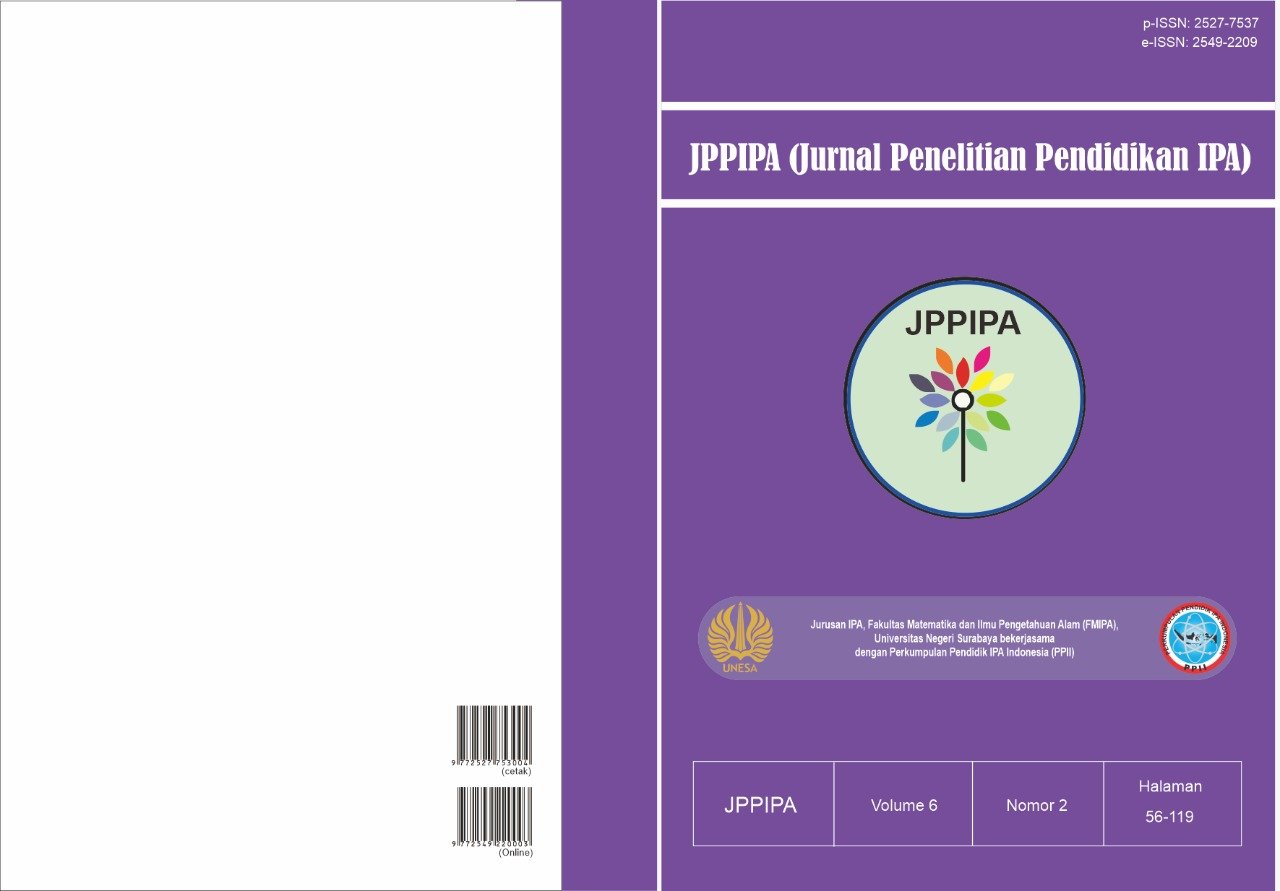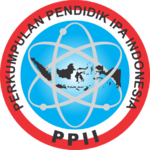ANALYSIS OF SCIENTIFIC LITERACY SKILLS IN SOLVING QUESTION SCIENCE ON FOOD SECURITY THEMES IN SERANG CITY
DOI:
https://doi.org/10.26740/jppipa.v6n2.p56-63Keywords:
Science Literacy, Science Questions, Food Resilience ThemeAbstract
In the 21st century, many changes have occurred in several aspects of life, one of which is the education aspect. Education in the era of globalization triggers comparisons of education internationally in terms of curriculum, assessment methods and student achievement in scientific literacy. The Program for International Student Assessment (PISA) is a program implemented by the OECD. Indonesia is a country with low PISA results with scientific literacy skills that are below average. Scientific literacy is the ability to think scientifically in understanding natural phenomena and solving problems found in nature. Scientific literacy ability consists of three dimensions, namely aspects of content, context and competence. This study aims to find out how the literacy skills of students in Kota Serang Junior High School in completing science on the science theme of food security. This type of research is descriptive qualitative research. The subjects of this study were 130 students of SMPN Serang City class IX who came from three schools, namely SMPN 1 Kota Serang, SMPN 13 Kota Serang and SMPN 25 Kota Serang. The research method used is descriptive qualitative research using research techniques in the form of test on the science of food security themes as many as 10 PG questions and analyzed using the Milles and Hubberman analysis method. Based on research data the quality of scientific literacy skills of junior high school students in Kota Serang is in the very low category with a percentage of 36%. If it is described in each aspect of scientific literacy ability, in the content aspect the percentage is 35%, the percentage context aspect is 35% and the percentage competence aspect is 36%.
References
Abidin, Y. (2014). Desain Sistem, Pembelajaran dalam Konteks Kurikulum 2013. Bandung: Refika Aditama.
Arifin Z. (2012). Evaluasi Pembelajaran. Jakarta: Direktorat Jenderal Pendidikan Islam Kementrian Agama.
Asyhari A., Hartati, R., (2015). Profil Kemampuan Literasi Sains Siswa Melalui Pembelajaran Saintifik. Jurnal Ilmiah Pendidikan Fisika Al-BiRuNi 04 (2) (2015)
ECD. (2015). PISA 2018 Assessment and Analytical Framework. Kanada: OECD
Hadinugraha, S. (2012). Literasi Sains Siswa SMA Berdasarkan Kerangka PISA (The Programme for International Student Assessment) pada Konten Pengetahuan Biologi. Skripsi pada FPMIPA UPI
Kemendikbud, (2019). Efect Program PISA Terhadap Kurikulum Di Indonesia. Jurnal Pendidikan dan Kebudayaan Vol 4, No 1 Juni 2019.
Miles, M.B. dan A.M. Huberman. (1994). Qualitatif Data Analysis. London: Sage Publication. International Education Professional Publisher Thousand Oaks London New Delhi
Nofiana M., dan Julianto T. (2017).Profil Kemampuan Literasi Sains Siswa SMP Di Kota Purwokerto Ditinjau Dari Aspek Konten, Proses dan Konteks Sains. Jurnal Sains Sosial dan Humaniora (JSSH). 8 Vol. I Nomor 2, September 2017
Purwanto, N. (2013). Prinsip-Prinsip dan Teknik Evaluasi Pengajaran. Bandung: Remaja Rosda Karya.
Toharudin, U., Hendrawati, S., dan Rustaman, A. (2011). Membangun Literasi Sains Peserta Didik. Bandung: Humainora.
Wulandari N., dan Solihin H. (2016). Analisis Kemampuan Sains Pada Aspek Pengetahuan dan Kompetensi Sains Siswa SMP Pada Materi Kalor. Jakarta. EDUSAINS. Volume 8 Nomor 01 Tahun 2016.
Yulianti Y. (2017). Literasi Sains Dalam Pembelajaran IPA. Jurnal Cakrawala Pendas. Vol 3 No 2 Edisi Juli 2017.
Downloads
Published
How to Cite
Issue
Section
 Abstract views: 636
,
Abstract views: 636
, PDF Downloads: 1193
PDF Downloads: 1193












